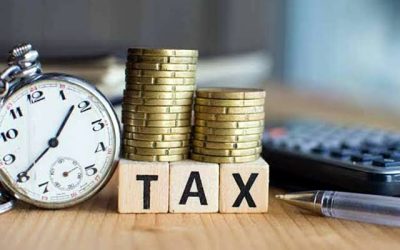VAT or value-added tax is a type of tax levied on goods and services that are sold within a country. In the United Kingdom, businesses are required to register for VAT if they exceed a certain threshold of sales in a year. In this blog, we will explore whether an Ltd needs to be VAT registered or not.
What is an Ltd?
An Ltd, also known as a limited liability company, is a type of business structure that operates as a separate legal entity from its owners. In an Ltd, the owners of the business hold shares in the company, and their liability is limited to the amount of their investment. This means that if the company incurs debt or is sued, the owners’ personal assets are protected. Ltds are popular among businesses that want to reduce their personal liability and are also suitable for companies that wish to issue shares to raise capital.
VAT Threshold for Ltds
In the United Kingdom, businesses are required to register for VAT if they exceed a certain threshold of sales in a year. The VAT threshold is currently set at £85,000. This means that if your Ltd’s taxable sales exceed £85,000 in a year, you are required to register for VAT. If your Ltd’s taxable sales fall below this threshold, you are not required to register for VAT.
It is important to note that taxable sales refer to the value of goods and services that are sold and are subject to VAT. This does not include exempt or zero-rated supplies, such as the sale of most food and children’s clothing. To calculate your Ltd’s taxable sales, you will need to keep accurate records of your sales and purchases and subtract any VAT that you have paid or charged.
Benefits of VAT Registration
While VAT registration can seem like a hassle, there are several benefits to registering for VAT. These benefits include:
- Ability to Claim VAT Back: If your Ltd is VAT registered, you are entitled to claim back the VAT you have paid on purchases for the business. This can help you save money on business expenses, as VAT is a tax that is added to the cost of goods and services.
- Increased Credibility: VAT registration can help to increase the credibility of your Ltd. Customers and suppliers may see your business as more professional and trustworthy if you are VAT registered. This can help to improve your Ltd’s reputation and increase sales.
- Access to New Markets: If your Ltd is VAT registered, you may be able to access new markets and sell to customers who are VAT registered themselves. This can help to expand your Ltd’s customer base and increase sales.
- Improved Cash Flow: By being VAT registered, you can reclaim the VAT you have paid on purchases, which can help improve your Ltd’s cash flow. This can be particularly beneficial for small businesses that have tight cash flow.
Disadvantages of VAT Registration
While there are several benefits to VAT registration, there are also some disadvantages to consider. These disadvantages include:
- Increased Administrative Burden: VAT registration requires businesses to maintain accurate records of their taxable sales and purchases. This can increase the administrative burden for your Ltd, as you will need to ensure that you are accurately recording and reporting your VAT information.
- Increased Costs: VAT registration may increase the costs associated with your Ltd’s operations, such as accounting and tax preparation fees. You may also need to invest in software or accounting tools to manage your VAT records.
- Complex Rules and Regulations: VAT registration requires businesses to comply with complex rules and regulations, which can be difficult to understand and comply with. This can lead to errors in
- VAT reporting, which can result in fines and penalties.
- Reduced Profit Margins: VAT is an added cost to your Ltd’s goods and services, which can reduce your profit margins. This can be particularly challenging for businesses that have already tight profit margins.
When to Register for VAT
If your Ltd’s taxable sales exceed £85,000 in a year, you are required to register for VAT. However, you may choose to register for VAT even if you do not exceed the threshold. This can be particularly beneficial if you expect your taxable sales to exceed the threshold in the near future.
It is also possible to register for VAT voluntarily if your taxable sales are below the threshold. This can be a good option if you want to claim back the VAT you have paid on purchases or if you want to increase the credibility of your Ltd.
Conclusion
In conclusion, whether or not an Ltd needs to be VAT registered depends on the amount of taxable sales it makes in a year. If your Ltd’s taxable sales exceed £85,000 in a year, you are required to register for VAT. While VAT registration has several benefits, it also has some disadvantages that need to be considered. It is important to carefully weigh the pros and cons of VAT registration before making a decision. If you are unsure about whether your Ltd needs to be VAT registered, you should seek the advice of a professional accountant or tax advisor.
How can Micahguru Formations help you?
Setting up a company in the United Kingdom as a non-resident can be a complicated and time-consuming process.
There are many legal and administrative tasks that must be completed correctly in order to ensure that your company is registered and compliant with all relevant regulations. Hiring a UK-based attorney to help with this process can be expensive, and many non-residents may not have the necessary resources or expertise to navigate the process on their own.
Micahguru Formations can help to simplify the process and reduce the costs associated with setting up a UK company as a non-resident. They have a team of experienced professionals who are well-versed in the legal requirements and procedures involved in company formation, and they can provide support and guidance every step of the way.
One of the key benefits of working with Micahguru Formations is their expertise in handling the paperwork and filing the necessary documents with Companies House. This includes submitting the articles of association, registering for taxes, and obtaining any necessary licenses or permits. They can also help with the process of opening a UK bank account, which can be a complicated and time-consuming task for non-residents.
In addition to handling the administrative tasks, Micahguru Formations can provide valuable advice and support to help you get the most out of your investment. They can help you understand the local business environment, identify opportunities for growth, and provide guidance on how to manage your finances and operations effectively.
Overall, Micahguru Formations can help you start your UK company as a non-resident quickly, efficiently, and cost-effectively, so that you can focus on growing your business and achieving your goals.




0 Comments